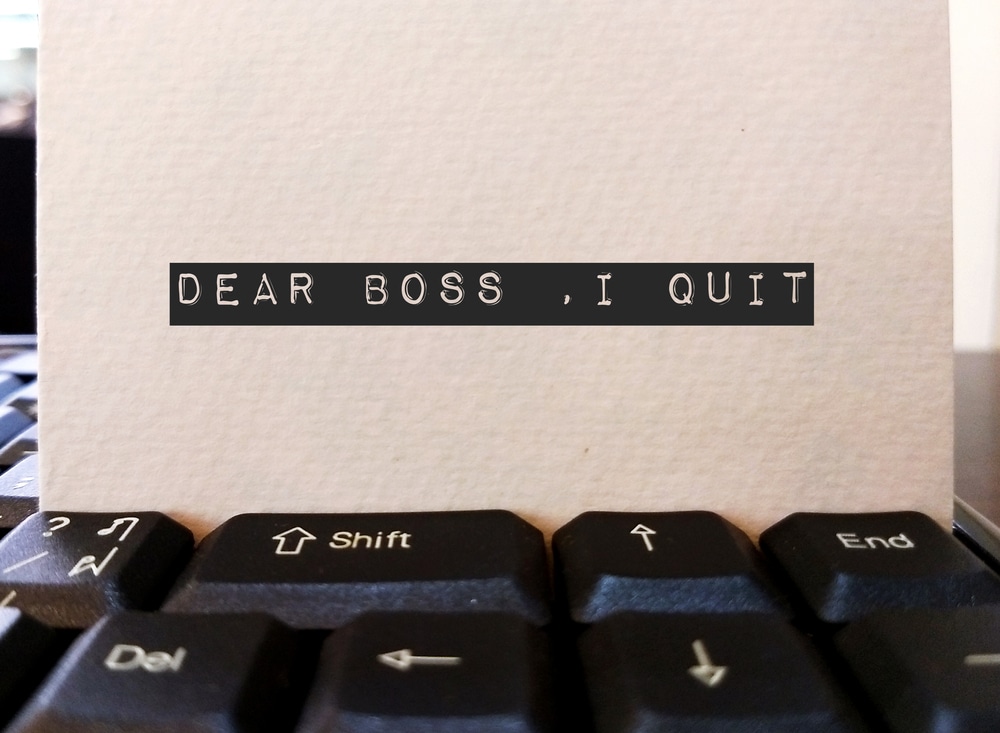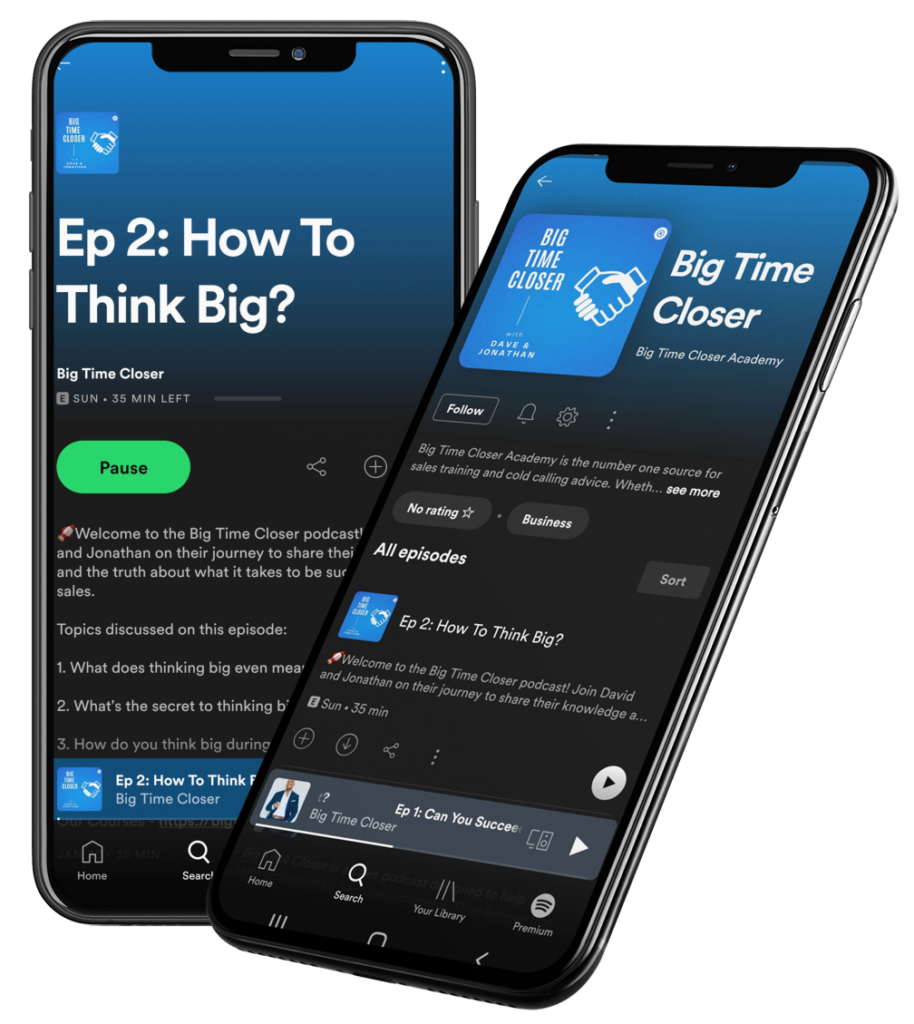So, you’ve been in sales for a while now, and you’re considering giving your two weeks’ notice. But is it really necessary? After all, you’re in a commission-based job, so you’re not exactly getting a regular paycheck.
Let’s explore.
Table of Contents
Am I Required By Law to Give Two Weeks Notice?
The answer to this question depends on a few things, including your state’s labor laws and the type of commission agreement you have with your employer.
In general, though, most states don’t have any laws requiring employees to give two weeks’ notice before quitting their jobs. And even if your state does have such a law, it probably doesn’t apply to you if you’re in commission-based sales.
The reason is that most states exempt “at-will” employees from their notice requirements. At-will employees are those who can be fired at any time, for any reason (or no reason at all), as long as it’s not an illegal reason (like discrimination).
So, if you’re an at-will employee, you can usually quit without giving any notice.
Of course, just because you can quit without notice doesn’t mean you should. In most cases, it’s still considered good manners (and good business) to give your employer some heads up before you leave.

What Happens when You Do Not Give Two Weeks Notice?
So let’s take a look at some of the potential downfalls of not giving two weeks’ notice.
1. You May Forfeit Your Commissions
If you’re in sales, then chances are you’re paid at least partially on commission. And if that’s the case, then not giving two weeks’ notice could cost you some serious money.
Most commission agreements include a clause that says you won’t be entitled to any commissions that you haven’t earned by the time you quit. So, if you give your notice on a Monday, but your commission period doesn’t end until the following Sunday, you probably won’t get paid for any sales you make during that last week.
Again, double-check on your agreement with the company. There were companies I worked at that strictly enforced these rules, and others that paid willingly after you had left.
2. You Could Damage Your Professional Reputation
Quitting without notice can also damage your professional reputation in the short and long term.
In the short term, your current employer is likely to be upset with you (to put it mildly). And even though you’re leaving the company, that doesn’t mean you’ll never have to deal with those people again. You never know when you might run into a former boss or co-worker at a networking event or job interview, and you don’t want to be known as someone who quit without warning. Unless you plan on quitting sales for good, then you’ll probably be fine.
In the long term, not giving two weeks’ notice could also come back to bite you on your job search. Many employers won’t even consider candidates who don’t have a reputation for being professional and respectful. So, if you’re hoping to land a job with a new company, it’s in your best interest to give two weeks’ notice (even if you’re not legally required to).
3. You May Not Get a Positive Reference
Another potential downside of not giving two weeks’ notice is that you may not get a positive reference from your current employer.
When you quit without notice, your boss may be so upset that they’re unwilling to give you a positive reference (or any reference). And that could make it difficult for you to get a job with another company.
Thankfully, most employers can look past that, knowing that most people leave jobs because they weren’t on good terms in the first place.
4. You May Have to Pay Back Any Training Costs
Finally, if you’ve quit without notice, you may be required to pay back the cost of any training or education that your employer paid for.
This is one of the most overlooked aspects of quitting without notice. But it’s important to remember that if your employer has paid for your training, they have the right to expect you to stay with the company for a certain period of time.
Quitting without notice could cost you hundreds or even thousands of dollars in training costs, so make sure you’re prepared to pay that back.
What’s the Best Way to Resign from A Commission-Based Sales Position?
Okay, so now you understand the ramifications of quitting without notice. But what’s the best way to resign from your sales position?
Submit a Letter of Resignation
The first step is to submit a letter of resignation. This formal document states your intention to quit, and it should be addressed to your boss or manager.
Your letter of resignation doesn’t have to be long or complicated. A simple, concise letter is usually best. But there are a few things you should include:
- The date of your resignation
- A statement of your intention to resign
- The reason for your resignation (this is optional, but it’s a good idea to include it)
- Your appreciation for the opportunity to work at the company
- Your contact information (in case your employer needs to get in touch with you)
- A statement of your willingness to help with the transition
Once you’ve written your letter of resignation, you should sign it and date it. Then, you can either hand-deliver it to your boss or manager, or you can send it via email.
Stay Positive & Friendly
Even if you’re leaving your job because you’re unhappy, it’s important to stay positive and friendly when you resign.
This is especially true if you plan on staying in touch with your boss or co-workers after you leave. You never know when those relationships might come in handy, so it’s best to maintain them.
Plus, burning bridges is never a good idea.
So, even though it might be tempting to vent your frustrations or badmouth your employer, it’s best to keep those thoughts to yourself. Instead, focus on the positive aspects of your time at the company, and express your appreciation for the opportunity to work there.
Revisit the Contract You Signed
When you were first hired, you probably signed a contract that included a clause about quitting without notice.
If that’s the case, you should look at that contract before you resign. That way, you’ll know exactly what you’re agreeing to and what the repercussions might be.
It’s also important to note that even if you didn’t sign a contract, your employer might still have certain expectations. For example, they might expect you to give two weeks’ notice (even if it’s not in writing).
How To NOT Resign from A Sales Position
Avoid Telling Anybody Before Telling Your Boss
Your boss should be the first to know that you’re resigning. If you tell your co-workers or boss’s boss first, it will make things awkward and uncomfortable.
Plus, it could jeopardize your job if your boss finds out that you told somebody else before you told them. I know a guy who ran his mouth to a friend about quitting, and his boss found out. He was fired on the spot. I’m not going to play the guessing game on whether or not that was in his contract, but suffice it to say, he wished he had just kept his mouth shut.
Don’t Just Leave without Saying Anything
I know this seems like common sense, but you’d be surprised how many people do this. They just up and leave without giving any notice or explanation.
I’ve actually had someone working for me who told me he was going to his grandma’s house to drop a monitor off and never returned. I had to track him down and get his stuff out of the office. Don’t be that guy.
This is just unprofessional and will make you look bad (even if you don’t care about that). If you’re going to quit, at least have the decency to tell your boss first.
Don’t Bail on Your Responsibilities
Just because you’re quitting doesn’t mean you can stop doing your job. You need to continue working until your last day.
This means completing any projects you’re working on, training your replacement (if possible), and tying up any loose ends.
You don’t want to leave your boss in the lurch, so make sure you finish up your work before you go.
Keep It Short & Sweet
When you resign, don’t make a speech. Just state your intention to leave and be done with it. Your boss doesn’t need (or want) to hear a long-winded explanation of why you’re quitting.
If they ask for an explanation, keep it brief. You can say something like, “I’m leaving to pursue other opportunities,” or “I’m resigning for personal reasons.”
Whatever you do, don’t badmouth the company or your boss. That will just make you look petty and unprofessional.
So, Should a Commission Salesperson Give Two Weeks’ Notice?
Truthfully, so many factors go into this, so I’ll leave you with my best advice.
If you have a good relationship with your boss and would be truly helping the company out, go ahead and give two weeks’ notice.
However, if you’re not sure how they’ll react or if you think it might jeopardize your commissions, then it’s probably best to just resign without notice.
In the end, it’s up to you. Just make sure you weigh all the pros and cons before making a decision.
Can You Leave a Job Due to Stress?
Absolutely. I wanted to touch on this part last. A commission-based sales job can be one of the most stressful jobs out there.
I know from experience. When you are banking on a commission check to pay next month’s rent, the stress can be unbearable.
I’ve seen people buckle under the pressure, and it’s not pretty. If you’re at your wit’s end and on the verge of a breakdown, it might be time to consider quitting.
Your mental health is more important than any job, so don’t be afraid to walk away from a commission-based sales job if it’s stressing you out.
Conclusion
I hope this article has helped clear up some of the confusion on whether or not a commission salesperson should give two weeks’ notice. As I said, there is no right or wrong answer, but I hope this article has given you something to think about.
If you have any questions or comments, feel free to leave them below. I’ll be happy to answer them.






